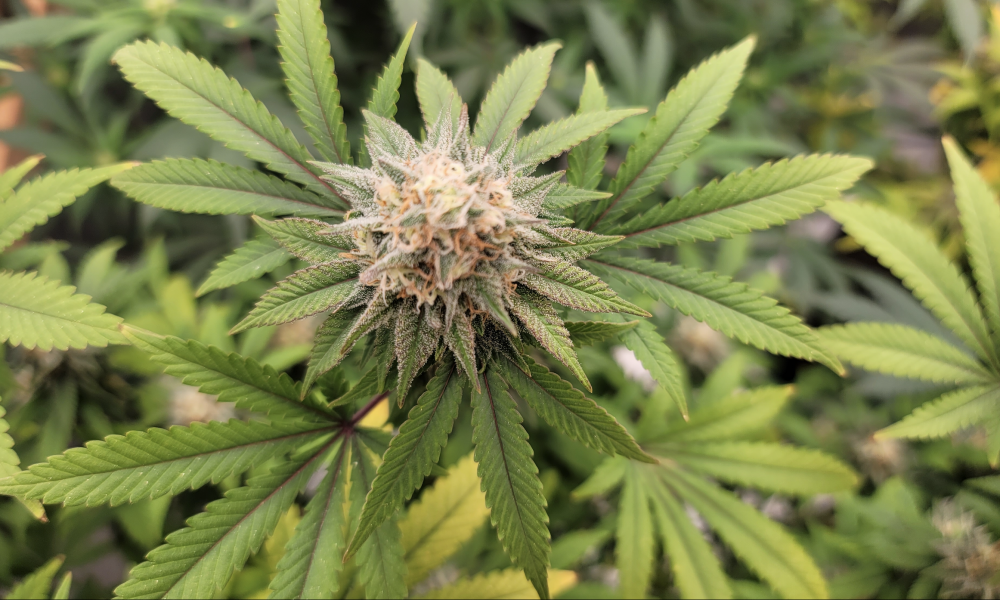New York marijuana regulators say that they are working to launch a pilot program to allow cannabis farmers markets, which could potentially start “within a month.”
At a town hall event for cultivators that was organized by the Cannabis Association of New York (CANY) on Thursday, officials with the state Office of Cannabis Management (OCM) said that marijuana farmers markets could help meet consumer demand while allowing growers to finally get products that were grown last year to the legal market.
Rules for the “New York Cannabis Growers Showcase” program haven’t been released, and OCM Director of Policy John Kagia said that there are “several issues that we’re still working through internally, but we have the authorization here to discuss it.”
The plan for the showcases is to have “a minimum of three growers” and at least one licensed retailer hosting farmers market-style events in municipalities that authorize them.
At least initially, on-site consumption would be prohibited because permitting people to use marijuana at the markets would require additional permitting from the state Department of Public Health. Also, organizers will have to ensure that alcohol isn’t also sold at the events.
OCM Chief Equity Officer Damian Fagon said at the event, which was first reported on by New York Cannabis Insider, that regulators hope to get the farmers markets ready to open “optimistically, within a month.”
“A lot of this is going to be on you guys to organize, to self-organize,” Fagon said. “A lot of what we want to do here is create guidelines for this pilot and see what you do with it, let you run with it.”
https://t.co/hKmR0mxpcL
— Cannabis Association of New York (@thinkcany) May 26, 2023
Theoretically, farmers could seek municipal approval and hold the farmers markets on their own property. Or they could seek to join other events like concerts and festivals that are being separately organized.
With just over a dozen licensed retailers currently operating in New York, the alternative sales model could help broaden access while regulators work to stand up additional legal storefronts.
“We think this is really important because it does two things,” Kagia said. “One, it allows the growers to get in front of the consumers who are going to be buying legal regulated product in New York, and allows you to tell your stories.”
“Two, it allows you to sell product much more quickly across the state, so the idea would be that the retailers are going to be confined to the regions where they’re authorized to operate, but the growers would be able to do this anywhere in the state.”
The announcement about the farmers market pilot program comes as Gov. Kathy Hochul’s (D) administration steps up its push to transition people to the legal market, despite the bottlenecking of retailer license approvals to date.
That includes launching a public education campaign last month encouraging adults to buy their marijuana from licensed shops to ensure that products are safe and that revenue is used to advance equity and reinvestment goals.
The New York Senate also recently formed a committee focused exclusively on marijuana that will be collaborating with regulators as the state’s cannabis market evolves.
Officials did announce in March that they are doubling the number of conditional adult-use marijuana licenses that can be approved, from 150 to 300, after receiving feedback from certain applicants that they would be able to more expeditiously open storefronts without additional support through a state program designed to help eligible entities create physical locations.
The governor also recently introduced legislation to increase enforcement authority to crack down on illicit marijuana retailers as the state struggles to stand up the regulated adult-use market.
Hochul visited one of the handful of currently operating cannabis retailers in February, though she didn’t buy anything, even as she signaled openness to trying marijuana in the future.
In December, Hochul separately unveiled a marijuana business and product verification tool, with plans to post a QR code on licensed cannabis retailers and a universal symbol label for authorized cannabis products.
She also signed a bill in late November aimed at expanding the state’s hemp market by promoting collaborative partnerships to identify more opportunities to utilize the crop and its derivatives for packaging, construction and other purposes.
California Officials Award More Than $50 Million In Marijuana Tax-Funded Community Reinvestment Grants
Photo courtesy of Mike Latimer.
Read the full article here









